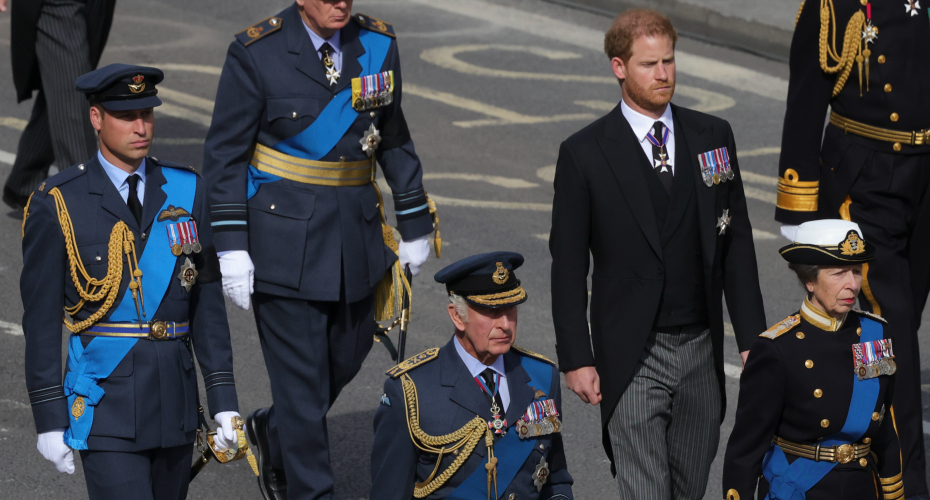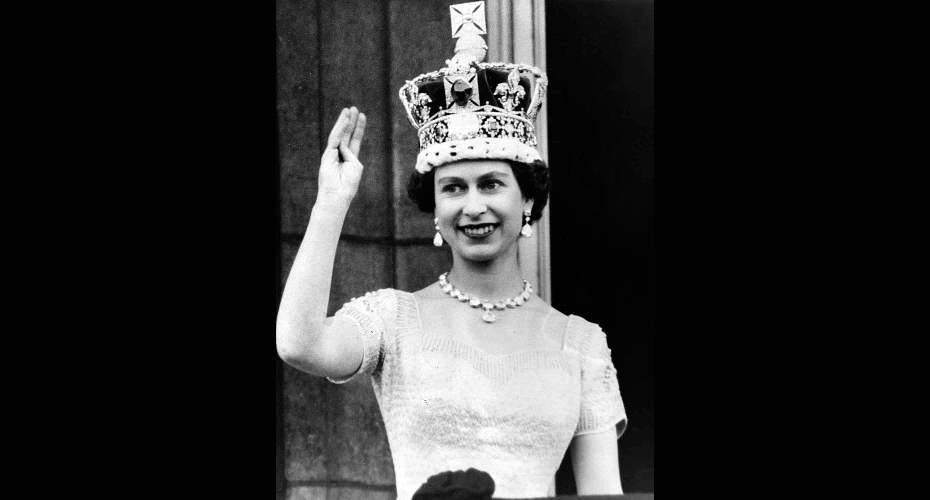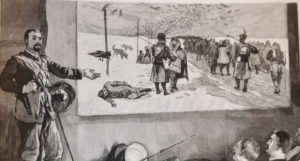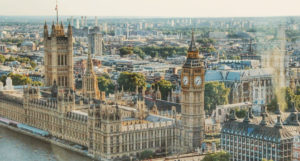Coronation 2023: Royal Wars – an origin story
In the fourth opinion piece in the series, historian Professor Richard Toye looks at the political landscape of 1953 and finds some of the seeds of today’s ‘Royal Wars’.

Queen Elizabeth II coffin arrives at the Houses of Parliament. Photo by the UK Government, via Wikimedia Commons.
By Professor Richard Toye, of the Department of Archaeology and History.
As the reception to Prince Harry’s book Spare demonstrates, the monarchy is controversial, even though it still enjoys considerable popular support, and reform or abolition seem an unlikely prospect. There is a tendency to assume that this is novel. It is easy to contrast the popular enthusiasm that met the accession of Elizabeth II with the bitter royal battles of today. There was talk then of a ‘new Elizabethan age’ of exploration and invention, with the new Queen as a symbol of renewal after the trials of post-war austerity. Now, such optimism is rare. It is hard to find anyone who thinks that the reign of Charles III will mark a period of rebirth and renewed national vitality.
It is perfectly true that there was genuine affection for Elizabeth when she came to the throne, though it’s scarcely surprising that a photogenic woman of 25 should have inspired more warmth than her son has latterly done (who was 73 when he acceded and has a controversial track record). She was to a considerable extent a blank canvas, and people could project their hopes and desires on to her. At the same time, the monarchy was undoubtedly politicised and there were significant worries about the tawdry behaviour of the media. The difference was that the Queen was seen as potential victim of the press rather than someone who was accused of colluding with it for her own ends.
This becomes clear from a fascinating article published in the left-wing weekly Tribune shortly after George VI’s death in 1952. It was by Jennie Lee, a Labour MP best-known for her later role in founding the Open University, and for her marriage to her radical parliamentary colleague Aneurin Bevan. Some of Lee’s sentiments seem conventional enough, proof even of the Labour Party’s deferential attitude to Establishment institutions. She argued that “the young Queen needs the love and protection of us all. One thing we can at once do is to insist that the Queen’s private life be respected and that she be given not only time enough, but peace of mind, to live her private life”.
Yet this was an argument with an edge. Lee’s party had recently lost a general election, and to her the actions of the new Conservative government in respect of the monarchy were highly suspicious. Under the Tories, she wrote, Buckingham Palace would have to be perennially on the alert. She drew attention to the invitation to visit, extended to the late King, by South Africa’s Apartheid government. Though he was never able to take it up, ministers appear to have advised him to accept it. This was “criminal folly”, according to Lee. “At the moment when the Royal Family plainly seek to behave with perfect discretion, who almost succeeded in trapping them to appearing to take sides in one of the most passionately controversial political and social issues of the day?” she wrote.

It was not so much that Prime Minister Winston Churchill and his colleagues were deliberately trying to enmesh the monarchy in ugly situations, Lee claimed, rather that they were simply too old-fashioned to know what they were doing. She also attacked the ‘sensational press’, which, she said, had no respect for the Palace. “If it thinks that there is any advantage in it for Mr. Churchill and the Tory Party it will fabricate and publish lying accounts about alleged incidents involving the Royal Family just as readily as about any of the rest of us,” she wrote.
For sure, Lee’s views were far removed from Republicanism – but her support for the monarchy was conditional on its staying completely aloof from party politics. She went out of her way to claim that Britain’s royals were committed to constitutional propriety in order to blame any controversy that might arise on the Tories and the press.
We should not exaggerate the similarities between the situation in the 1950s and that of 2023. If Lee thought the media was bad then, her mind would boggle if she picked up a tabloid today. But we can see that the events of seven decades ago were not the antithesis of our modern Royal Wars – rather they were part of their origin story.



